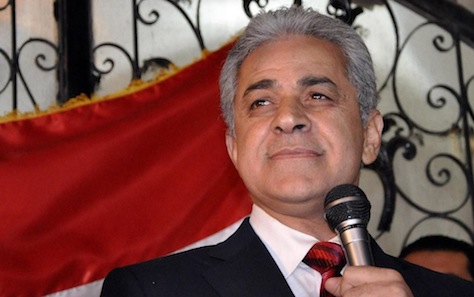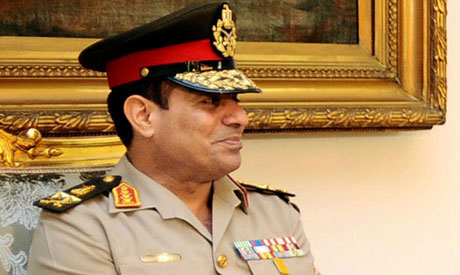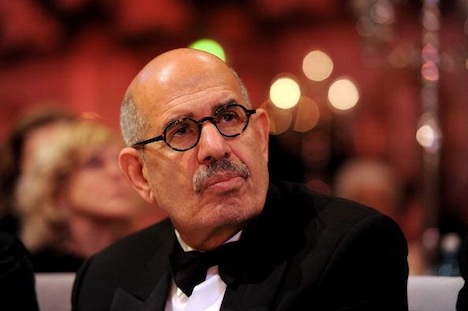There’s not a lot of doubt about the outcome of Egypt’s May 26-27 presidential elections.![]()
Abdel-Fattah el-Sisi, the former army chief and defense minister who orchestrated the coup that toppled Islamist president Mohammed Morsi in July 2013, is the wide frontrunner in what will be the eighth national election — including constitution referenda and presidential and parliamentary elections — since the fall of former Egyptian president Hosni Mubarak in February 2011.
While there’s plenty of time to speculate about how el-Sisi will govern Egypt as its ‘civilian’ president, he still faces nominal opposition in the form of his only challenger, Hamdeen Sabahi.
Back in May 2012, Sabahi quite nearly made his way into the presidential runoff, and he actually won the greatest share of the vote in Cairo, the Egyptian capital. Though no one expected him to emerge as a major candidate, he slowly became a leading player in the campaign.
Unlike Morsi, he was a secular candidate, so there would be no risk that Sabahi would have turned Egypt over to the Muslim Brotherhood (الإخوان المسلمون), which largely happened once Morsi eventually won the president and took office.
Unlike Ahmed Shafiq, who unsuccessfully faced off against Morsi in the June 2012 runoff, Sabahi never served in the Mubarak administration, and so couldn’t be counted among the felool — or remnants — of the old regime. Rather, Sabahi was as a liberal activist and Mubarak critic in the 1990s and 2000s. During the Tahrir protests, he was on the front lines, urging Mubarak’s fall.
But more fundamentally, Sabahi seemed to capture the kind of nationalist spirit most often associated with Gamal Abdel Nasser, Egypt’s internationally renowned president in the 1950s. Like Nasser, Sabahi is a nationalist and a leftist and Sabahi campaigned on a ‘neo-Nasserite’ platform that included a fiercely independent Egyptian foreign policy and programs to alleviate poverty and unemployment. Though Egypt remains the world’s largest Arab country, it’s no longer the cultural, financial and political engine of the Arab world that it was during the Nasser era, but Sabahi’s 2012 campaign tapped into the same sense of Egyptian pride in the same way as the 2011 revolution centered in Cairo’s Tahrir Square, which culminated with the fall of Mubarak’s 30-year regime.
There’s almost no doubt that in a runoff against either Morsi or Shafiq, Sabahi would have easily won the presidency. Ultimately, Morsi won 24.8%, Shafiq won 23.7%, and Sabahi won just 20.7%, leaving Egyptians with a gruesome choice between a Muslim Brotherhood lackey and a Mubarak-era air force general.
Sabahi, like many liberals, reluctantly endorsed Morsi. Also like many liberals, he initially supported military intervention against the Morsi administration in June 2013, with Morsi and his Brotherhood allies pushing the boundaries of Egyptian democracy and constitutionalism.
Unfortunately for Sabahi, he isn’t the Nasser of the 2014 presidential election.
Sabahi isn’t even the ‘Sabahi’ of the race anymore.
That’s el-Sisi. Continue reading How Egypt’s el-Sisi out-Nassered (and out-Sabahi’ed) Sabahi






